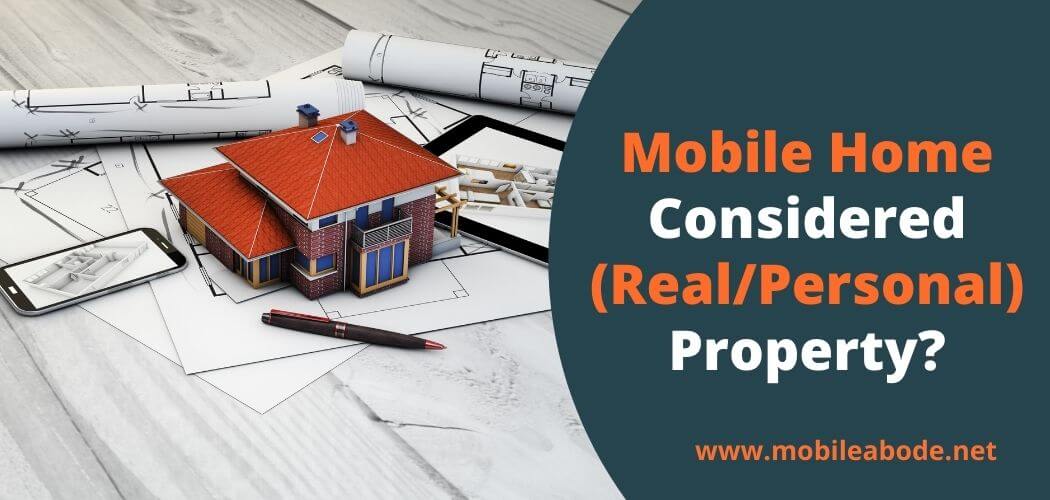There is no definitive answer to this question. The determination of whether a mobile home is considered real property can vary from state to state and even county to county.
Generally, a mobile home is considered personal property if it is registered with the DMV or if it does not have a permanent foundation.
However, if the mobile home has a permanent foundation or is zoned for residential use, it may be considered real property.
Relevant Article: Can I Put A Mobile Home On My Property Such As Backyard?
Is a mobile home considered real property?
There are a few factors that may be taken into consideration when making this determination.
- Whether mobile home is registered with the DMV or not.
- Whether mobile home has a permanent foundation or not.
- Whether mobile home is zoned for residential use or not.
When a mobile home is not registered with the DMV, it is typically considered personal property.
If you are considering purchasing or leasing a mobile home that does not have a registration in your name, understand that this may mean that you will be required to pay local property taxes and thus be placed on the local tax rolls.
If you are considering purchasing or leasing a mobile home that has a permanent foundation, this means that it is probably zoned for residential use.
According to the International Association of Assessing Officers (IAAO), there are some considerations when determining whether the property is real or personal:
” A distinction between personal property and real property is that personal property can be moved from one location to another, but real property cannot. Personal Property consists of the following:
(1) Tangible items such as cash, jewelry, automobiles, furniture, clothing, and household appliances;
Items of tangible personal property can be picked up and moved from place to place. The ownership of these items can be transferred from one person to another by sale, gift, or will.
(2) Intangible items such as options, privileges, contracts, and leases;
Intangible personal property is an ownership interest in something that cannot be seen or touched. It usually refers to a right or a privilege granted by someone else. Contracts, patents, trademarks, copyrights, franchises, and mineral rights are all types of intangible personal property.”
As you can see from the above explanation from IAAO, a mobile home with a permanent foundation or zoned for residential use is probably considered real property.
If the mobile home is registered with DMV as a recreational vehicle, it is typically considered personal property.
If you have any other questions about whether a mobile home is considered real or personal property in your area, please contact an attorney or your local assessor’s office.
How to convert mobile home to real property?

If you are interested in converting your mobile home to real property, there are a few things that you will need to do.
- You will need to contact your local assessor’s office and let them know that you would like to have your mobile home assessed as real property.
- You will need to have a survey performed to determine the exact location of your mobile home.
- You will need to have all systems required for a house inspected and brought up to code if necessary. The following list contains examples of items that may require inspection: Heating system, electrical wiring, plumbing, roofing material/condition, walls/ insulation materials, and window/door type and condition.
- You will need to pay any applicable taxes on the mobile home as if it were a traditional house.
- You may need to obtain a mortgage or deed of trust to legally convert the mobile home to real property.
If you are interested in converting your mobile home to real property, please contact your local assessor’s office for more information.
There can be tax benefits to owning a mobile home that is classified as real property.
For example, in some areas, you may be able to take advantage of the homestead exemption, which reduces the amount of tax that you owe on your primary residence.
Please consult with an attorney or your local assessor’s office to discuss the tax benefits that you may receive if your mobile home is classified as real property.
Also Read: Can I Put A Tiny House On My Property?
Conclusion:
In the eyes of a lender, it’s not. If you want to borrow from a bank for your mobile home, they will most likely require that you have land on which to put it.
This is why many people choose to finance their homes with an RV loan instead since this type of financing typically only requires that borrowers show proof that they own or lease property where their trailer can be situated while they repay the loan amount over time.

